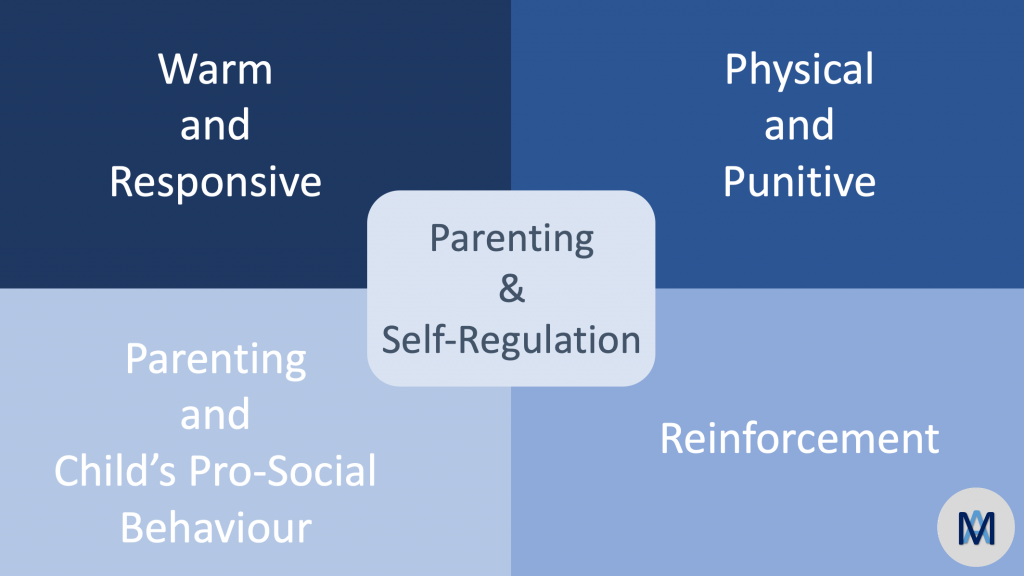‘Self–regulation‘ is the ability to monitor and manage your energy states, emotions, thoughts, and behaviors in ways that are acceptable and produce positive results such as well-being, loving relationships, and learning.’ How then do we acquire this skill that we as ‘social-animals’ are driven to exhibit.
Parenting, is one of the most important factors in the development of this skill. Discussed below are a few factors that are a function of the same.
- Warm & Responsive:
This kind of parenting improves and strengthens self regulatory skills in children when the parent is receptive to the emotional needs. Their awareness facilitates learning positive self regulation skills to meet situational demands, develop foundation of temperament and grooms personality. When the parent caters to emotional needs and are sensitive & accepting of the same it has a positive impact in self regulation of the child decreasing chances of eternalising or internalising problems. This relates to development of conscience in the child
- Physically Punitive Parenting:
It is form of negative parenting where directives are threatening and negative. The signals and learnings are such that expectations are conveyed in a very intolerant and imposed way. The child is scared of the parent resulting in an aggressive manner. Child deals with over-arousal, aggression and depression. There’s a contempt of the directive and the child’s response to the delivery of the directives – how the messages are conveyed and received, how they are going to react to it. This decreases the likelihood to positive outcomes and leads to a release of negative emotion in a different place. Displacement might occur. The development of self regulatory skills happens in a negative manner.
- Parenting and child’s pro-social behaviour:
The parent showcases a helping behaviour without expecting anything in return. It is a more giving behaviour on voluntary basis. The goals is to benefit others. Altruism is a kind of pro-social behaviour. It is taught by strategies.
- Reinforcement
a. Verbal Reinforcement: Appreciative positive messages, clap.
Child wants to repeat these behaviours. Sometimes even bride them to teach the child that he has to do something to benefit. A group of researchers say that child will learn negative aspect because altruistic behaviour is dependent on rewards.
b. Child internalizes the desired behaviours when behaviour is modelled by positive parenting. This does not happen with negative parenting because focus is shifted from learning to suppression.
Reciprocal Altruism: Individuals cooperate with those people who cooperate with themselves and see a benefit out of the cooperation.
